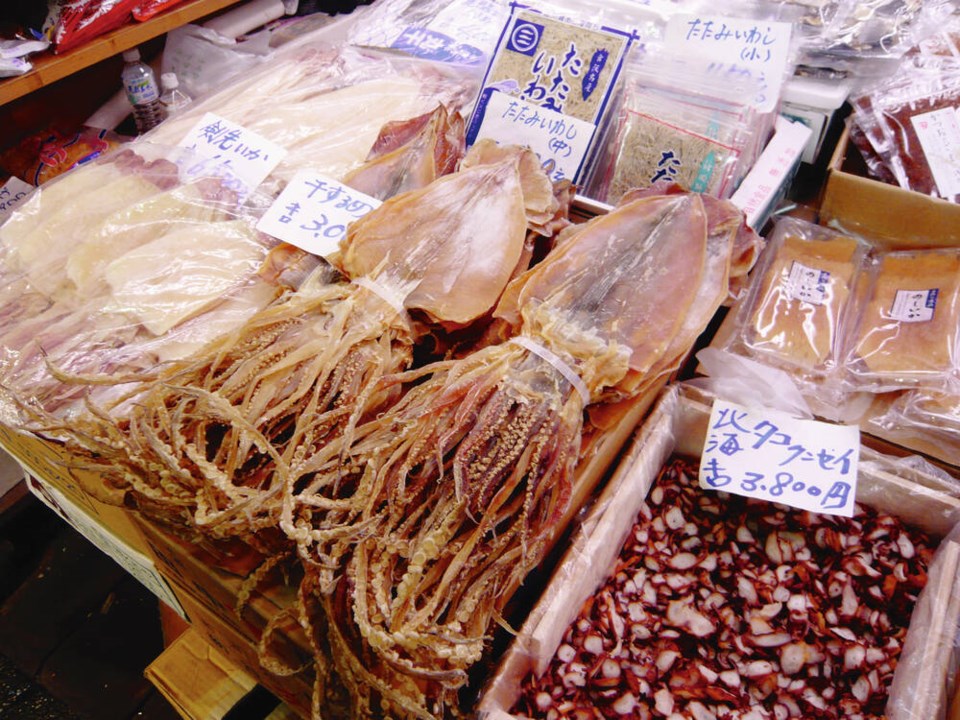I was watching a clip from comedian Bobby Lee where he shared his childhood experience of having friends over.
Lee is Korean and explained how he would hide things so his friends wouldn’t think his family was weird, including the dried squid that hung in the kitchen.
I never had a dried squid in my kitchen and the visual image was intriguing.
I thought of a good friend who is Korean and wondered if he had similar experiences. So, the next time I saw him, I asked: “Did you ever have a dried squid hanging in your kitchen when you were young?”
His eyes lit up. “Yes, and Korean peppers too. There was always dried food hanging in the kitchen.”
I explained why I asked, and shared a few more details about the clip, and my friend agreed that he had had the same experiences as Lee.
It’s fascinating to me how a short clip where someone referenced part of their culture led to that exchange with my friend, where I was able to learn more about him.
When we have friends and colleagues we enjoy spending time with, we often connect about the things we have in common. It’s human nature.
Something as simple and not pertinent to my friendship as dried squid hanging in the kitchen probably never would have come up in conversation.
For me, the dried squid showed that there are things about our friends, their families and culture that we won’t know about unless we ask.
There are many things that make us the same, and other pieces that are so different. This is what makes the world interesting.
This week, I’ve found myself sharing a story in a few different conversations about the first class I ever taught at Royal Roads University. The class was Entrepreneurship and I was teaching it to international students.
I was marking the students’ business plans — there were 39 of them from about 20 countries.
In one business plan, a student had referred to “luck” as being an important part or the business.
It stopped me in my tracks. “Is this a Google translate error?” I thought.
I highlighted it and was going to add a comment, but didn’t even know how to address it. So I kept the file open and continued marking papers with the intention of coming back and adding a comment later.
As I continued to mark papers, I found a handful of students who also referenced “luck” in their business plans. I realized this wasn’t a Google translate issue, and the word “luck” wasn’t there by accident.
Each one of the students who referenced “luck” was from Asia, and I realized it must be a cultural thing.
In many Asian cultures, luck does play an important role in life. Even if it’s not common to see luck referenced in a business plane in sa国际传媒, that doesn’t make it wrong.
I know some readers will write me saying it’s sa国际传媒 and most people wouldn’t see it the same way as me, and that’s OK, too.
Many of the business plans were written for businesses the students wanted to open in their home countries after graduation. In all honesty, even if the business was planned for sa国际传媒, I think luck can be in the business plan if it’s important to the entrepreneur.
I love it when lessons present themselves to me like this one. It’s a moment when I can quietly be reminded that there are many different values in different cultures, and being exposed to them can challenge the views and values I have.
I am fascinated by cultures and feel it’s important that when we find these differences, we ensure they are treated with respect.
It’s easy to get tunnel vision when it comes to the “best practices” we follow. I never shy away from the reminder that not everyone does things like we do, and our way isn’t the right way, the better way or the only way.
Whether it’s a dry squid hanging in a kitchen or luck in a business plan, I am not there to judge. I choose to lead with curiosity and interest.
>>> To comment on this article, write a letter to the editor: [email protected]



